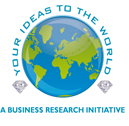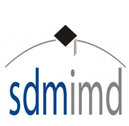
CONFERENCE ANNOUNCEMENT
Second Middle East Conference on Global Business, Economics, Finance and Banking
ME15Dubai Conference at Dubai, UAE. May 22-24, 2015

Global Business Research Journals
Online International (Double-Blind Peer Reviewed) Research Journals
CONFERENCE ANNOUNCEMENT
Call for Papers!
Second Middle East Conference on Global Business, Economics,
Finance and Banking
ME15DUBAI CONFERENCE
Theme: Managing Core Risks in Banking & Financial Institutions!
Emerging Trends!!
May 22-24, 2015
Venue: Al Murooj Rotana Hotel (Opp. to Dubai Mall), Dubai,
United Arab Emirates.
ISBN - 978-1-941505-26-7
INVITED LECTURES
Venue: Al Yassat Conference Hall, Al Murooj Rotana Hotel
Invited Lecture 1
23 May 2015, 13.30 pm – 14.00 pm
Topic:
“Risk Management
Strategies in the Global Environment”

Invited Lecture 2
24 May 2015, 10.15 am – 10.45 am
Topic:
“Building an Effective
Risk Culture in Banks & Financial Institutions”

Invited Lecture 3
24 May 2015, 10.45 am – 11.30 am
Topic:
BASEL III – Challenges
&
Options for Banks



Dear & Esteemed Colleagues,
Warm greetings!
We are delighted to inform you that a Second Middle East Conference on Global Business, Economics, Finance and Banking is being jointly organized by the prestigious SDMIMD, Mysore, Karnataka State, India and the Global Business Research Journals (GBRJ) from May 22-24 in Dubai, UAE.
You are cordially invited to submit your research manuscripts/case studies in all areas of research in Business. In addition to paper presentations and discussions, the Conference will include invited lectures on contemporary topics in emerging trends in Global Business, Economics, Finance and Banking.
Important Dates!
Abstract Deadline (250 words) |
: |
|
Communication of Acceptance |
: |
One Week |
Full Paper Submission Deadline |
: |
|
Last Date for Registration |
: |
|
Conference Dates |
: |
May 22-24, 2015 |
Conference Objectives!
Global Financial Meltdown and Risk Culture in the Banking and Financial Sector!
Global financial meltdown (2008) has taught many hard lessons. The failure of Lehman Bros.,(September 2008) triggered a series of events which includes collapse of many banking and financial institutions resulting in their bailout by the national governments. Global stock markets fell dramatically and housing sector suffered heavily triggering drop in prices. Business failures resulted in decline in manufacturing activities and shareholder wealth, job losses, default on loans and house foreclosures.
Economists argue that global economic crisis has shattered the global banking and financial system owing to multiple causes; the most significant among them include lack of understanding of risk management practices, excessive risk-appetite, growth of housing bubble, inadequate policies, procedures & control mechanism, highly complex & risky financial products, failure in governance & internal controls, excessive debt component (high gearing) on balance sheets resulting in poor buffer capital, uncontrolled expansion/predatory lending, CDS market growth, excessive exposure to various risks, weak financial & stress testing models and shadow banking system, among others.
Risk Management! A Sine-quo-non!
As mentioned earlier, risk management in banks and financial institutions has gained a lot of significance after the global financial meltdown. According to recent reports, 98% of company boards or board-level risk committees review risk management reports after the global crisis. This is indeed, a step in the right direction. The first and foremost step should be to identify the different types of risks that might affect an institution. The potential risks include the following:
Business Risk: (Macro policy, legal system, regulatory framework/compliance, country risk, strategic risks etc.,).
Operational Risk: (White-collar crimes, internal and external systems failure, damage to physical assets, delivery and processes etc.,).
Financial Risk: (leverage, inadequate buffer capital, excessive credit, liquidity problems, interest rate volatility, currency volatility etc.,).
In addition, there are many other risks that potentially affect the institutions and their successful functioning. For instance, board failure, management failure, accounting failure, governance failure and regulatory failure do affect the banking and financial institutions putting their survival at risk. (Source: Hennie van Greuning, World Bank Treasury).
Increased regulations and governance, comes with a price as they put heavy pressure on the bottom line. However, investor protection should be one of the top priorities of every institution in the world.
Against this backdrop, the present conference aims at achieving the following objectives:
a) Increase the awareness and understanding of risk management practices in banks and financial institutions;
b) Provide an ideal platform for researchers, economists, bankers and practitioners to share their research and practical experience in implementing successful risk awareness and implementation practices in their organizations;
c) Safeguard institutions from business, financial, operational risk-related failures and avoid exposure to such risks in the future;
d) Suggest suitable risk management systems so that the future of banking and financial systems is quite safe.
OUR PRINCIPAL ACADEMIC PARTNER:
Shri Dharmasthala Manjunatheshwara
Institute for Management Development (SDMIMD)
Mysore, Karnataka
Shri Dharmasthala Manjunatheshwara Institute for Management Development (SDMIMD), ranked among the top Business Schools in India, is located at the foot of Chamundi Hills in the heritage city of Mysore, Karnataka. The campus has won many architectural and landscape awards and provides a great environment for learning and germination of managerial intellect. The institute has been conferred A** Rating at National Level by CRISIL.
The institute is promoted by the Shri Dharmasthala Manjunatheswara Educational Trust - a premier non-profit educational organisation functioning under the aegis of Shree Kshetra Dharmasthala, which is known for its unique embodiment of Dharma. Today, SDME Trust has more than 40 recognised educational institutions under its wings, imparting quality education from the primary level to the postgraduate level. Trust is known for the professional institutions in Medical, Dental, Engineering, Naturopathy, Ayurveda, Law, , Business Management and Physiotherapy. The trust and all the associate institutions benefit from the visionary leadership of our Chairman, Padma Bhushan Dr. D. Veerendra Heggade, Dharmadhikari of Dharmasthala.
SDMIMD’s AICTE approved PGDM programme, accredited by NBA, runs for six terms over two years with an impeccable track record of academic rigor. SDMIMD also has Student Exchange Programs with the MAYS School of Business, Texas A&M University, USA; Global Management Institute of Shanghai University, China; and British University in Dubai, Dubai. These student exchange programmes enable students to understand each other’s cultures, business practices and traditions. This gives students an edge when it comes to international opportunities.
The SDMIMD’s research unit - SDM Research Centre for Management Studies’ (SDM RCSM), publications ‘Cases in Management’, ‘Contemporary Research in Management’, ‘Excerpts of Select Summer Internship Reports’, have come in for praise from the world of academics. The institute’s journal ‘SDMIMD Journal of Management’ indexed in EBSCO and iScholar has evolved as a prestigious publication well known for the quality of the papers, therein.
To know more about SDMIMD please visit: www.sdmimd.ac.in
Our Supporters to the conference:

The Case Centre UK Registered Office:
Cranfield University,
Wharley End
Beds MK43 0JR,
UK.
t +44 (0)1234 750903
email: [email protected]








